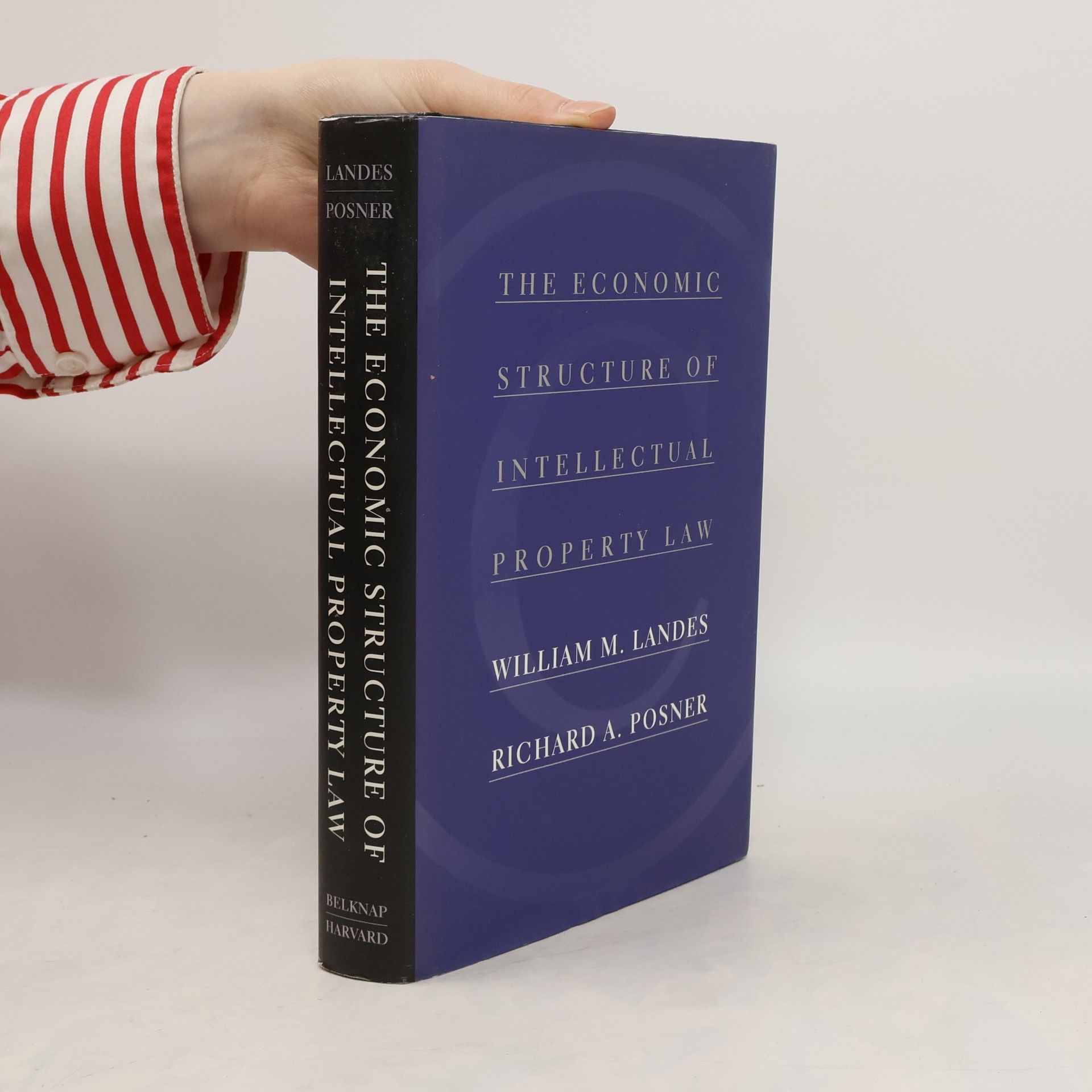Leonard Cohen, Untold Stories: That's How the Light Gets In, Volume 3
- 496 stránek
- 18 hodin čtení
Chronicles the full breadth of Cohen's extraordinary life.
Richard Posner je uznávaný právní myslitel, jehož dílo zkoumá průsečík práva, ekonomie a literatury. Jeho psaní se vyznačuje hlubokým analytickým vhledem a pragmatickým přístupem k právním problémům. Posner se ve své práci často zaměřuje na to, jak ekonomické principy formují právní rozhodování a jak lze právo chápat skrze literární a filozofické perspektivy. Jeho rozsáhlé publikace a akademická kariéra z něj činí klíčovou postavu v současné právní teorii.






Chronicles the full breadth of Cohen's extraordinary life.
Thirty years ago a young assistant professor named Richard Posner asked the question of whether the existence of natural monopoly provides adequate justification for government intervention. His answer was no. The evils of natural monopoly are exaggerated, the effectiveness of regulation in controlling them is highly questionable, and regulation costs a great deal.Thirty years after its initial publication, read the original insights of Richard Posner about the regulation of natural monopoly as well as a new preface in which Posner reflects on the deregulation of industries that has occurred since 1969 and the possibilities for more deregulation in the future.
The second volume of the extraordinary life of the great music and literary icon Leonard Cohen, in the words of those who knew him best.
This book takes a fresh look at the most dynamic area of American law today, comprising the fields of copyright, patent, trademark, trade secrecy, publicity rights, and misappropriation. It demonstrates the fundamental economic rationality of intellectual property law, but is sympathetic to critics who believe that IP rights have gone too far.
Chronicles the full breadth of Cohen's extraordinary life. This first volume, of three, follows him from his boyhood in Montreal to university, and from his burgeoning literary career to the world of music, culminating with his first international tour in 1970
A distinguished and experienced appellate court judge, Posner offers in this new book a unique and, to orthodox legal thinkers, a startling perspective on how judges and justices decide cases.
Emphasizes the differences between law and literature, which are rooted in the different social functions of legal and literary texts. This book include topics such as the cruel and unusual punishments clause of the Constitution, illegal immigration, surveillance, global warming and bioterrorism, and plagiarism.
"In the five years since Nobel Prize-winning economist Gary S. Becker and renowned jurist and legal scholar Richard A. Posner began writing a blog together, the Becker-Posner Blog has established a reputation as a reliable source of lively, thought-provoking commentary on current events. Uncommon Sense gathers the most important and innovative entries from the blog, arranged by topic, along with updates and even reconsiderations when subsequent events have shed new light on a question."--Jacket
The author reveals the dangerous weaknesses undermining domestic intelligence in the United States and tells why a new national security service should not be part of the FBI. He explains the need for a new domestic intelligence agency, modeled on the Canadian Security Intelligence Service and lodged in the Department of Homeland Security.
The investigation, impeachment, and trial of President Clinton
In a book written while the events were unfolding, Richard Posner presents a balanced and scholarly understanding of President Clinton's year of crisis which began when his affair with Monica Lewinsky hit the front pages in January 1998. With the freshness and immediacy of journalism, Posner clarifies the issues involved, carefully assesses the conduct of Independent Counsel Kenneth Starr, and examines the pros and cons of impeaching President Clinton as well as the major procedural issues raised by both the impeachment in the House and the trial in the Senate. This book, reflecting the breadth of Posner's experience and expertise, will be the essential foundation for anyone who wants to understand President Clinton's impeachment ordeal.